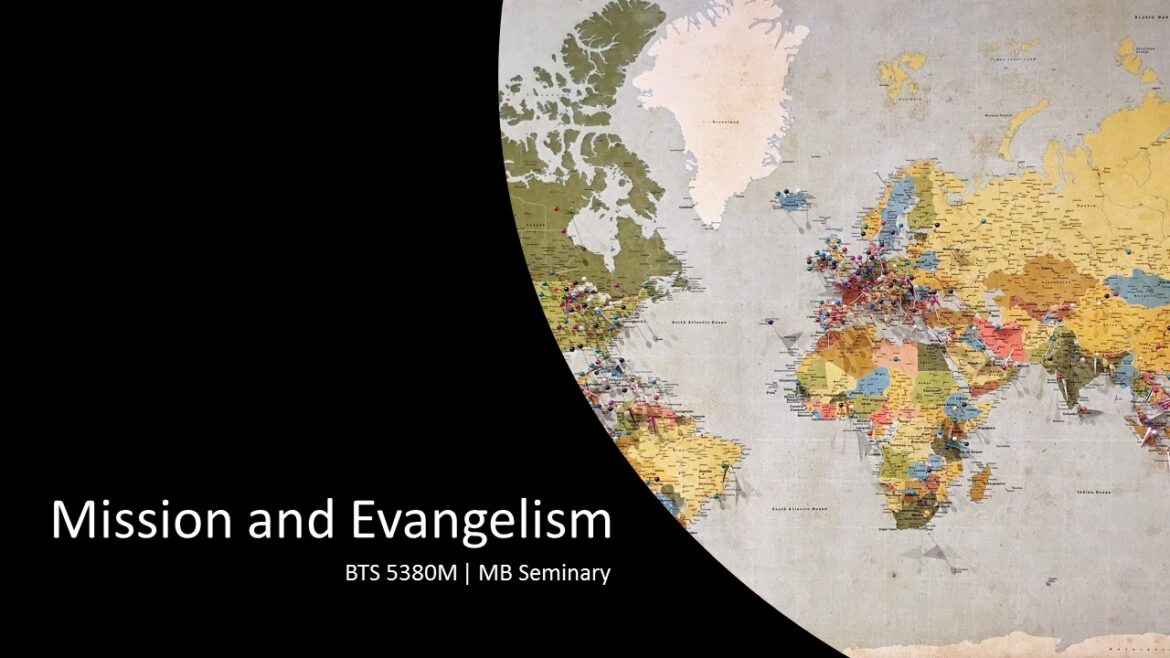Understanding what constitutes an “evangelistic church” necessitates delving into both the theological underpinnings and practical manifestations of evangelism within the ecclesiastical context. The term “evangelistic” derives from the Greek word “euangelion,” which translates to “good news” or “gospel.” Thus, an evangelistic church is one that is unapologetically committed to the dissemination of the Gospel message, both within its community and beyond.
At its core, an evangelistic church views evangelism not merely as a function of its identity but as a fundamental aspect of its mission. This delineation of identity and mission is critical. Evangelism is not an ancillary activity; it is the core around which the church’s existence revolves. This perspective establishes evangelism as a primary attribute of the church’s corporate character. Therefore, the church’s mission is inherently linked to its identity as a vessel for the propagation of Christ’s message.
One of the pivotal observations regarding evangelistic churches is their fascination with outreach. This commitment often stems from a deep-seated belief in the transformational power of the Gospel. Additionally, it reflects an understanding of a divinely ordained mandate to share this message with a lost and searching world. The Great Commission, recounted in Matthew 28:19-20, serves as a clarion call for believers: “Go therefore and make disciples of all nations.” This directive underlines the imperative for evangelistic churches to engage actively in mission work, stressing that evangelism should not be perceived as a solitary effort but as a communal undertaking.
Moreover, the cultural milieu plays a significant role in shaping the identity of an evangelistic church. In the contemporary landscape marked by skepticism, pluralism, and moral relativism, an evangelistic church often grapples with the challenge of articulating its beliefs amidst divergent worldviews. The fascination with evangelism may stem from a collective yearning to assert one’s faith in an increasingly secular society, where the courage to proclaim the Gospel is often met with resistance or apathy. This scenario reveals a deeper reason for the church’s involvement in evangelistic activities; for many, it is a spiritual and existential response to a world in flux.
Furthermore, the evangelistic ethos permeates various aspects of church life, influencing worship, education, and community engagement. Worship services may incorporate gospel-centered messages designed not just for edification but also for outreach. Congregants are encouraged to invite friends and family, blurring the lines between evangelism and fellowship. The use of media, outreach events, and social justice initiatives intertwines with the church’s mission, reinforcing the belief that evangelism can manifest in myriad forms. It serves as a reminder that the act of proclaiming the Gospel is not limited to what is uttered from the pulpit but is profoundly enhanced through everyday interactions.
Moreover, an evangelistic church often seeks to cultivate an atmosphere of inclusivity. Open-door policies and the cultivation of relationships underscore the idea that the church is not a fortress for the faithful but rather a sanctuary for all who seek truth. This extension of grace and acceptance towards those on the fringes reflects Jesus’ ministry and fosters genuine connections that transcend theological debates. Thus, the practice of evangelism transforms into an invitation for others to experience community without the prerequisite of conformity.
One might consider the broader implications of such a church. The relationship between evangelism and identity is symbiotic; as the church engages in outreach, it invariably reshapes its understanding of self. This transformational cycle results in a dynamic church culture where congregants are not merely attenders but active participants in the life of the church. Consequently, each member becomes a steward of the Gospel and an integral part of the church’s mission. The act of evangelism becomes a participatory endeavor, fostering ownership and deepening the collective commitment to a shared vision.
However, the journey towards embodying an evangelistic identity is not without its challenges. Internal struggles such as complacency, fear of rejection, and theological misconceptions can hinder effective outreach. Addressing these barriers requires intentional discipleship, equipping individuals with knowledge and confidence to share their faith meaningfully. Educational initiatives focused on the nature of evangelism and the art of storytelling can empower congregants to engage with confidence in their communities.
In this intricate interplay between mission and identity, it becomes vital for an evangelistic church to regularly reflect on its purpose. Opportunities for communal discernment, prayer, and dialogue can lead to renewed clarity. The understanding that the health of an evangelistic church relies on its alignment with biblical tenets of love, grace, and humility is crucial. Indeed, evangelism is less about conversion and more about relationship-building—both with God and with others.
In summation, an evangelistic church endeavors to be a beacon of hope amidst despair. It demonstrates how evangelism intertwines with the very essence of Christian identity. The fascination with evangelism arises from a profound appreciation for the Gospel’s power to bring life, purpose, and transformation. By committing to this mission, evangelistic churches not only fulfill their divine calling but ultimately reflect the heart of Christ in a complex and often fragmented world. The journey toward being an evangelistic church is one marked by grace, commitment, and unwavering faith in the transformative power of the Gospel.



